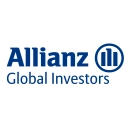Profile
| Metric | Value |
|---|---|
| Full Name | The Korea Fund, Inc. |
| Ticker | NYSE: KF |
| Exchange | NYSE |
| Sector | Financial Services |
| Industry | Asset Management |
| Country | United States |
| IPO | |
| Indexes | Not included |
| Website | thekoreafund.com |
| Employees | - |
Key Metrics
| Metric | Date | Value |
|---|---|---|
| $47.83 | ||
| Price, 1D Change | +0.50% | |
| $200M | ||
| 2.89% | ||
| - | ||
| 0.70 | ||
| $10M | ||
| Revenue, 1Y Change | -15.00% | |
| - | ||
| EPS, 1Y Change | - |
Chart
Events
| Metric | Date | Value |
|---|---|---|
| Next Earnings | N/A | |
| Last Qtr. Earnings | N/A | |
| Last Ann. Earnings | N/A | |
| Last Ex-Dividend | $1.38 | |
| Next Ex-Dividend | N/A | N/A |
| Last Split | 1:10 | |
| Next Split | N/A | N/A |
| Last Ticker Change | N/A | N/A |
| Next Ticker Change | N/A | N/A |
🔒 Log In To Unlock Full Data
Estimates
| Metric | Date | Value |
|---|---|---|
| - | ||
| EPS Estimate | N/A | - |
| EPS Est. Change | N/A | - |
| $10.18M | ||
| Revenue Estimate | N/A | - |
| Revenue Est. Change | N/A | - |
| $47.83 | ||
| Price Target | - | - |
| Price Tgt. Change | - | - |
🔒 Log In To Unlock Full Data
EPS
Revenue
🔒 Log In To Unlock Full Data
Performance
| Metric | Date | Value |
|---|---|---|
| +137.49% | ||
| +101.73% | ||
| - | ||
| - | ||
| -15.00% | ||
| +112.41% | ||
| - | ||
| - |
🔒 Log In To Unlock Full Data
Technical Indicators
| Metric | Date | Value |
|---|---|---|
| $47.83 | ||
| $30.99 | ||
| SMA 200 vs Price | -35.21% | |
| $39.50 | ||
| SMA 50 vs Price | -17.42% | |
| 0.70 | ||
| $1.37 | ||
| 76.63 | ||
| 32.95% | ||
| 26.46% |
Dividends
| Metric | Date | Value |
|---|---|---|
| $1.38 | ||
| Upcoming | N/A | N/A |
| 0.95% | ||
| $0.45 | ||
| - | ||
| - |
🔒 Log In To Unlock Full Data
Income & Profitability
| Metric | Date | Value |
|---|---|---|
| $10.18M | ||
| - | ||
| - | ||
| - | ||
| - | ||
| - | ||
| $8.60M | ||
| - | ||
| - |
🔒 Log In To Unlock Full Data
Financial Health
| Metric | Date | Value |
|---|---|---|
| - | ||
| - | ||
| - | ||
| - | ||
| - | ||
| - |
Valuations
| Metric | Date | Value |
|---|---|---|
| - | ||
| - | ||
| 1.55 | ||
| - | ||
| N/A | - |
Balance Sheet
| Metric | Date | Value |
|---|---|---|
| $128.36M | ||
| $474.13K | ||
| $129.65M | ||
| - | ||
| $1.30M | ||
| - | ||
| - | ||
| - | ||
| $1.12M |
Expenses
| Metric | Date | Value |
|---|---|---|
| - | ||
| $1.57M | ||
| - | ||
| $1.06M | ||
| - | ||
| $43.00 | ||
| - |
Cash Flow
| Metric | Date | Value |
|---|---|---|
| - | ||
| - | ||
| - | ||
| - | ||
| - |
Recent analyst updates
| Metric | Date | Value |
|---|---|---|
| No data | N/A | N/A |
Analyst sentiment
Institutional ownership
Screeners with KF
FAQ
What is the ticker symbol for The Korea Fund, Inc.?
The ticker symbol for The Korea Fund, Inc. is NYSE:KF
Does The Korea Fund, Inc. pay dividends?
Yes, The Korea Fund, Inc. pays dividends. The last payment was $1.38, with an ex-dividend date on December 23, 2025
What sector is The Korea Fund, Inc. in?
The Korea Fund, Inc. is in the Financial Services sector
What industry is The Korea Fund, Inc. in?
The Korea Fund, Inc. is in the Asset Management industry
What country is The Korea Fund, Inc. based in?
The Korea Fund, Inc. is headquartered in United States
When did The Korea Fund, Inc. go public?
The Korea Fund, Inc. initial public offering (IPO) was on August 22, 1984
Is The Korea Fund, Inc. in the S&P 500?
No, The Korea Fund, Inc. is not included in the S&P 500 index
Is The Korea Fund, Inc. in the NASDAQ 100?
No, The Korea Fund, Inc. is not included in the NASDAQ 100 index
Is The Korea Fund, Inc. in the Dow Jones?
No, The Korea Fund, Inc. is not included in the Dow Jones index
When does The Korea Fund, Inc. report earnings?
The date for The Korea Fund, Inc.'s next earnings report has not been announced yet
Data Sources & References
- KF Official Website www.thekoreafund.com
- KF Profile on Yahoo Finance finance.yahoo.com/quote/KF
- KF Profile on NASDAQ.com www.nasdaq.com/market-activity/stocks/kf
